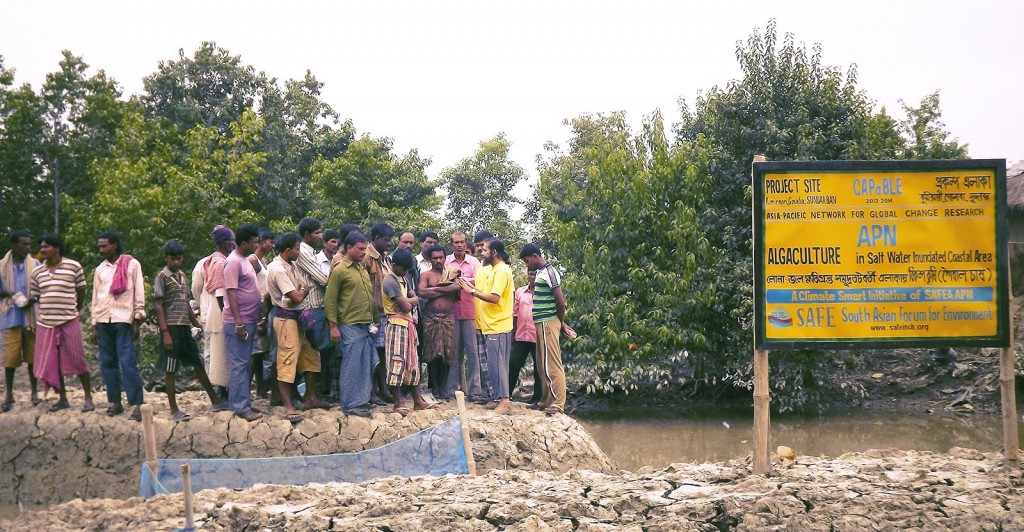
In coastal villages of Sundarbans in India that are usually inundated due to rising sea levels, thousands of families are at risk as crop yields drops due to saltwater intrusion. As an adaptive climate change measure for marginal farmers, the South Asian Forum for Environment (SAFE) promotes community-based algaculture in the area, reaching out to more than 700 marginal farmers in climate change-vulnerable villages through an APN-funded capacity building project (CBA2013-14NSY-Maity).
Three native algal species of economic importance have been stabilised for commercial mass culture and smallholder farmer families have started to adopt algaculture as an alternative livelihood. Creating potentials for bringing relief to thousands of impoverished families living in the area, algaculture also dramatically sequesters carbon as compared to using terrestrial plants – hence, is considered an effective practice in climate change mitigation.
By 2014, the project has grown out of its pilot phase into a multi-stakeholder endeavour involving reputable sub-national and national organisations.
Read more about the project in APN Science Bulletin 2014 (pages: 170-173).
The project in the press:
- Scientists of Jadavpurvarsity find an unusual friend in algae, Hindustan Times, 20 Feb 2014
- A green potion tonourish Sunderbans, The Times of India, 23 Feb 2014
Video: Algaculture in Sundarbans
